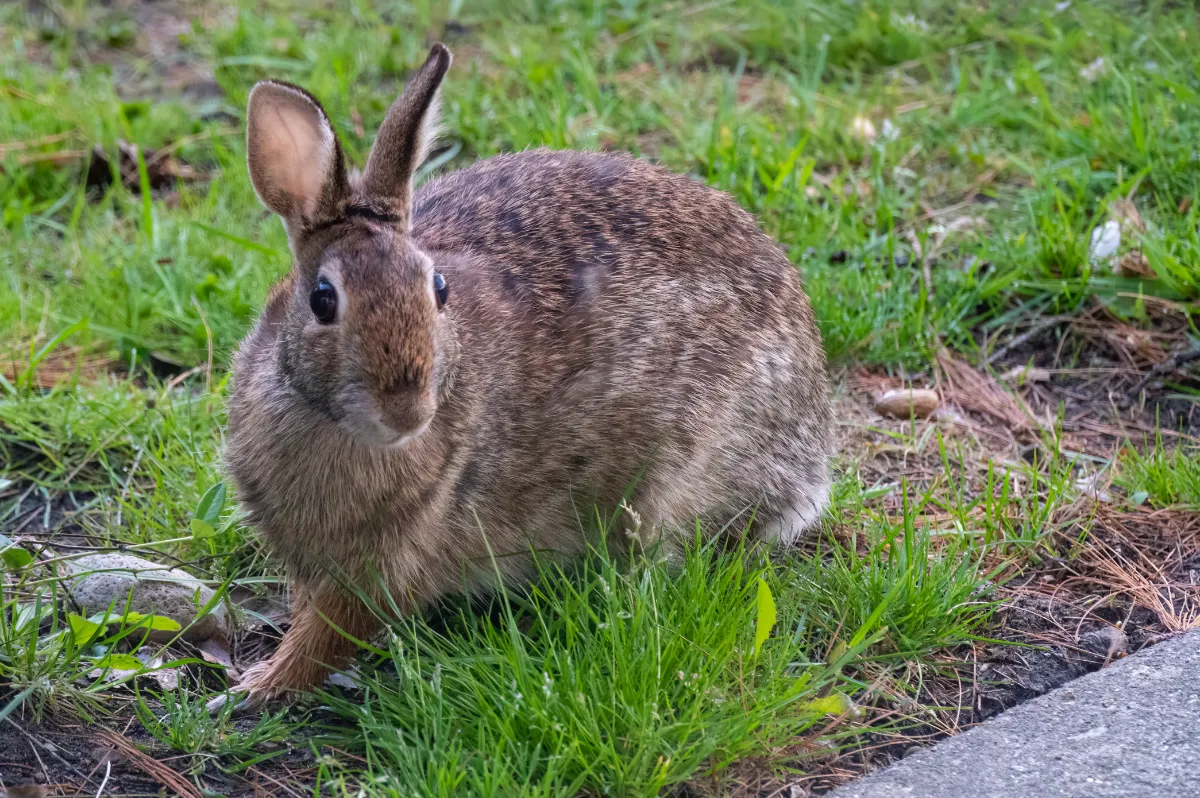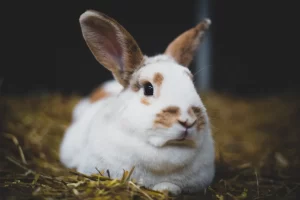Have you ever considered keeping a wild rabbit as a pet? Before you do, it’s important to understand the legalities surrounding this decision.
Owning a wild rabbit without the necessary permits and licenses can result in serious consequences. In this article, we will explore the laws protecting wildlife, the potential risks of keeping a wild rabbit, and ethical alternatives to consider.
By the end, you’ll have the knowledge you need to make an informed decision about whether or not to keep a wild rabbit.
In This Article
- 1 Key Takeaways
- 2 The Legalities of Keeping Wild Rabbits
- 3 Understanding Wildlife Protection Laws
- 4 Potential Consequences of Owning a Wild Rabbit
- 5 Permits and Licenses for Keeping Wild Animals
- 6 Alternatives to Keeping a Wild Rabbit as a Pet
- 7 Ethical Considerations of Taking in a Wild Rabbit
- 8 Resources for Reporting and Rehabilitating Wild Rabbits
- 9 Frequently Asked Questions
- 9.1 Can I Keep a Wild Rabbit as a Pet Without Facing Any Legal Consequences?
- 9.2 Are There Any Permits or Licenses Required to Keep a Wild Rabbit as a Pet?
- 9.3 What Are Some Alternatives to Keeping a Wild Rabbit as a Pet?
- 9.4 What Are the Potential Consequences of Owning a Wild Rabbit Without Proper Authorization?
- 9.5 Are There Any Ethical Considerations to Keep in Mind When Taking in a Wild Rabbit as a Pet?
- 10 Conclusion
Key Takeaways
- Keeping wild rabbits as pets without permits or licenses is illegal in many jurisdictions.
- Wild rabbits play a vital role in the ecosystem, and their removal can disrupt the balance of nature.
- Wild rabbits may carry diseases that can be transmitted to domesticated rabbits.
- Obtaining necessary permits and licenses is essential for legally keeping a wild animal as a pet.
The Legalities of Keeping Wild Rabbits
Do you know if it’s legal to keep wild rabbits as pets?
When it comes to wildlife rehabilitation and wildlife conservation, it’s important to understand the legalities surrounding the keeping of wild animals. In many jurisdictions, it’s illegal to keep wild rabbits as pets without the proper permits or licenses. This is because wild rabbits are protected under wildlife conservation laws, which aim to preserve and protect their populations in their natural habitats.
Keeping wild rabbits as pets can disrupt their natural behaviors and habitat requirements, leading to negative impacts on their overall well-being. Instead, it’s encouraged to support wildlife rehabilitation centers and organizations that work towards the conservation and proper care of wild animals.
Understanding Wildlife Protection Laws
You should familiarize yourself with wildlife protection laws, as they play a crucial role in safeguarding the well-being of wild animals.
Wildlife conservation is a pressing concern, and responsible pet ownership is an important aspect of it. Understanding and following wildlife protection laws is essential to ensure the preservation of biodiversity and the protection of vulnerable species.
These laws aim to prevent the illegal capturing, trading, or keeping of wild animals as pets. They also regulate the proper care and treatment of captive animals, ensuring that their physical and behavioral needs are met.
Potential Consequences of Owning a Wild Rabbit
Have you considered the potential consequences of owning a wild rabbit, and how it may impact both the rabbit and the environment?
It’s important to understand the legal repercussions and the environmental impact before deciding to keep a wild rabbit as a pet. In many places, it’s illegal to capture and keep wild animals without proper permits. This is because wild rabbits play a vital role in the ecosystem, and their removal can disrupt the delicate balance of nature.
Additionally, wild rabbits may carry diseases that can be transmitted to domesticated rabbits. They also require specific diets and habitats that may be difficult to replicate in a home setting.
Therefore, it’s crucial to consider the long-term welfare of the rabbit and the potential environmental consequences before making the decision to own a wild rabbit.
Permits and Licenses for Keeping Wild Animals
To legally keep a wild animal as a pet, you must obtain the necessary permits and licenses. This is important not only for your own legal protection but also for the well-being of the animal. Different jurisdictions have different permit requirements, so it is crucial to research and comply with the regulations in your area.
Wildlife rehabilitation centers play a vital role in ensuring the proper care and rehabilitation of injured or orphaned animals. These centers are staffed by trained professionals who have the knowledge and experience to provide appropriate care for wild animals. If you come across a wild animal in need of help, it is best to contact a local wildlife rehabilitation center for guidance.
| Permit Requirements | Wildlife Rehabilitation |
|---|---|
| Check local regulations | Contact a wildlife rehabilitation center |
| Obtain necessary permits and licenses | Seek guidance for proper care |
| Ensure compliance with regulations | Professionals provide appropriate care |
Alternatives to Keeping a Wild Rabbit as a Pet
Consider adopting a domesticated rabbit from a shelter instead of keeping a wild rabbit as a pet, as it allows you to provide a loving home while supporting animal welfare organizations.
Wild rabbits have specific needs that can be difficult to meet in a domestic setting. Rehabilitation programs and wildlife sanctuaries are dedicated to rescuing and rehabilitating wild animals, including rabbits, with the goal of releasing them back into their natural habitats.
These organizations have the necessary resources and expertise to ensure the well-being and survival of wild rabbits. By adopting a domesticated rabbit, you not only provide a safe and comfortable environment for the rabbit but also contribute to the important work of animal welfare organizations.
This way, you can have a fulfilling pet experience while making a positive impact on the lives of animals in need.
Ethical Considerations of Taking in a Wild Rabbit
If you decide to take in a wild rabbit, it’s important to research and understand the ethical implications of your decision. There are ethical dilemmas surrounding the practice of keeping wild animals as pets. While it may seem harmless to provide a home for a wild rabbit, there are several factors to consider.
Firstly, taking a wild rabbit out of its natural habitat can disrupt the delicate balance of the ecosystem. These animals have specific roles in their environment, and removing them can have a negative environmental impact.
Additionally, wild rabbits have specific dietary and behavioral needs that are difficult to replicate in a domestic setting. It’s crucial to consider the long-term welfare of the animal and whether you can provide a suitable and enriching environment.
Before bringing a wild rabbit into your home, it’s crucial to carefully weigh the ethical implications and ensure you can meet its needs.
Resources for Reporting and Rehabilitating Wild Rabbits
You should reach out to local wildlife organizations or animal control agencies for assistance in reporting and rehabilitating wild rabbits. These organizations have the expertise and resources to handle wildlife incidents and provide the necessary care for injured or orphaned rabbits. Reporting wildlife incidents is essential to ensure the well-being and conservation of wild rabbit populations.
Here are two ways these organizations can assist you:
- Reporting:
- Contact the local wildlife organization or animal control agency to report any wild rabbit incidents.
- Provide detailed information about the situation, including the location, condition of the rabbit, and any observed injuries or behavior.
- Rehabilitation:
- Wildlife organizations can provide guidance on how to safely transport the rabbit to a licensed wildlife rehabilitator.
- Rehabilitators have the knowledge and facilities to provide proper care, medical treatment, and ultimately release the rabbit back into the wild.
Frequently Asked Questions
Can I Keep a Wild Rabbit as a Pet Without Facing Any Legal Consequences?
You should consider the legal consequences of keeping a wild rabbit as a pet. There are alternatives to owning one, like adopting a domesticated rabbit. Ethical considerations, permits, and potential consequences should be taken into account.
Are There Any Permits or Licenses Required to Keep a Wild Rabbit as a Pet?
To keep a wild rabbit as a pet, you may need permits or licenses, depending on your location. Regulations and restrictions exist to protect wildlife and prevent illegal trading. Ethical considerations should also be taken into account, as there are potential consequences for both the rabbit and you.
What Are Some Alternatives to Keeping a Wild Rabbit as a Pet?
If you’re looking for alternatives to keeping a wild rabbit as a pet, consider adopting a domesticated rabbit instead. They can be trained using positive reinforcement techniques and make great companions.
What Are the Potential Consequences of Owning a Wild Rabbit Without Proper Authorization?
If you own a wild rabbit without proper authorization, you could face potential legal repercussions. Furthermore, the impact on the local wildlife population could be detrimental. It is important to consider these consequences before keeping a wild rabbit.
Are There Any Ethical Considerations to Keep in Mind When Taking in a Wild Rabbit as a Pet?
When taking in a wild rabbit as a pet, it’s important to consider ethical considerations and welfare concerns. Ensuring the rabbit’s well-being and providing a suitable environment are crucial for its health and happiness.
Conclusion
In conclusion, it’s important to understand the legalities and consequences of keeping a wild rabbit as a pet. Wildlife protection laws prohibit the ownership of wild animals without proper permits and licenses.
It’s estimated that only 10% of wild rabbits survive in captivity due to their specific dietary and habitat requirements.
Instead of keeping a wild rabbit, consider supporting local wildlife rehabilitators who can provide proper care and release them back into their natural habitat.





